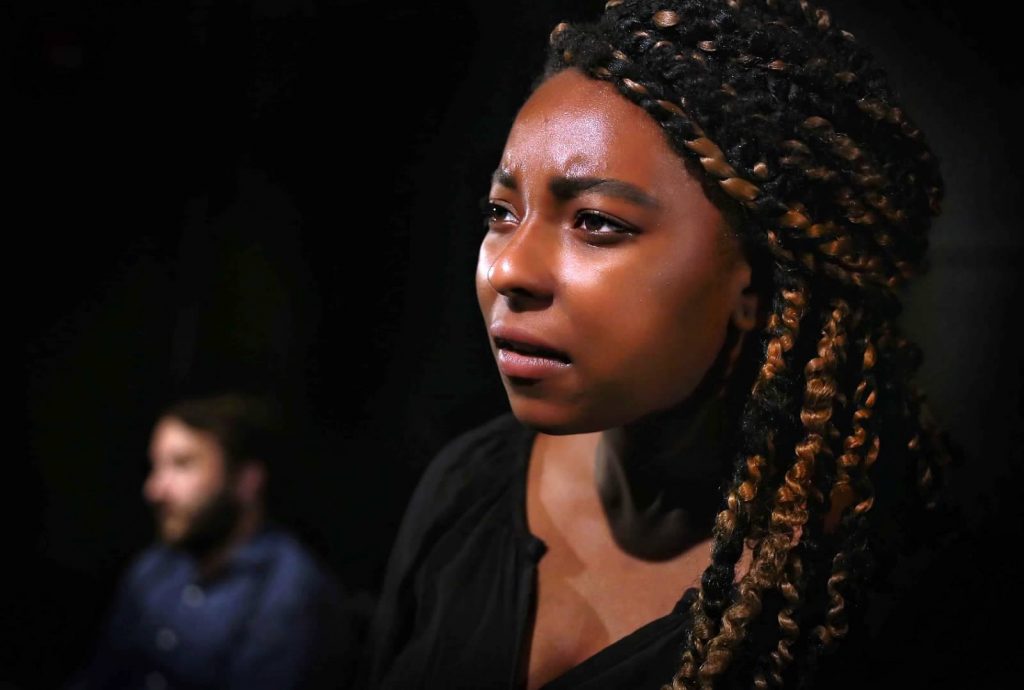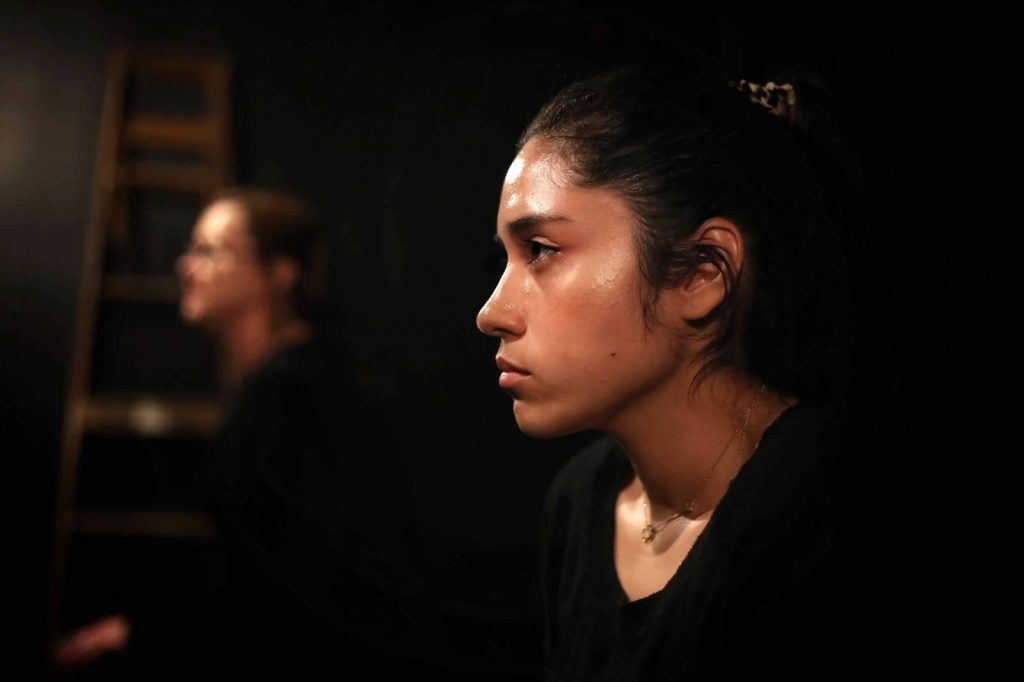In 1991, tensions between the African-American and Hasidic Jewish populations of Crown Heights, Brooklyn erupted into riots following the death of a 7-year-old Caribbean-American boy when a car driven by a Jewish man veered onto the sidewalk and the subsequent stabbing of a young Jewish scholar. Enter Anna Deavere Smith — playwright, author, actress and professor — in the wake of the chaos. Smith interviewed people directly and indirectly connected to the riots about the incident as well as asking questions about identity. The result is a gripping and intense play, Fires in the Mirror, that forces audiences to contend with difficult questions about truth, race and identity. The play won the Drama Desk Award for Outstanding One-Person Show and was a Pulitzer Prize finalist, ultimately losing out to Angels in America.

Fires in the Mirror is considered the pioneer of Verbatim Theatre, which is to say all of the text comes, verbatim, from the interviews Smith conducted — fillers, self-interruptions and all. The result is a kind of honesty and authenticity that you would not get from more polished speech. It becomes more like hearing straight from the interviewees than hearing an accomplished playwright’s interpretation.

While the play was originally done as a one-person show, starring Smith herself, embodying 26 different characters, Smith does encourage ensembles to tackle the piece, and this is the route director Kevin Broccoli chose for Epic Theatre’s production. The advantage of this is that the audience gets to see the characters come face to face and listen and react to what others are saying. It is a series of separate monologues, yes, but presented this way, it simulates a conversation – one that did not happen, but probably should have. One place where this is most apparent and striking is the back-to-back monologues of Minister Conrad Mohammed (Rudy Ru) discussing why slavery was a worse offense to God than the Holocaust and feminist author Letty Cottin Pogrebin (Nancy Winokoor) who recounts her uncle Isaac’s heartbreaking tale of surviving the Holocaust.

Most of the performers tackle multiple roles, each taking on different mannerisms and different ways of speaking (several different accents are represented, for instance) for each different character. The roles range from rappers (Krystal Hall) to rabbis (Jeffrey Ouellette and Justin Pimental), from family members of the victims (Jackie Aguirre and Rebecca Maxfield) to feminist writers (Alexis Ingram and Nancy Winokoor). The cast is rounded out by Javier Aybar, Angelique Dina, Wendall McMillan House, Ian Hudgins, Jomo Peters, Korey Pimental and Kathleen Povar.

The 29 monologues are grouped together by theme, starting with personal identity, then physical appearance, race and finally, reactions to the riot. Each grouping is separated by thematically appropriate music; within the themes, it moves along quickly from monologue to monologue, and each character’s name is spoken by another performer on stage, so you always know who is speaking. In this production, they are split into two acts, where act two contains all of the monologues directly concerning the riot, and act one is more generally about identity and race.

This production opens Epic’s eighth full season, themed “The Power of the Truth,” concluding a three-year examination of the political and the personal. It is precisely the kind of show Epic is most known for – one that does indeed require the audience to “#BuckleUp.” There is a lot to unpack with this one. Fires in the Mirror is a play that provides no easy answers, only difficult questions and each individual’s truth. As to what really happened the night that started the incident – was the driver drunk or was it just an accident? Did he try to help the child or was he too busy griping about his own shallow injuries? – all the audience is presented with are differing perspectives. Perhaps therein lies the greatest principle of this work: the truth can be a complicated thing, fraught with differing perspectives informed by differing personal identities and experiences. Likewise, different audience members may come out of this play with conflicting viewpoints. The point is not to tell the audience to think one thing or another; rather, the point is for the audience to simply think.
Epic Theatre’s Fires in the Mirror runs through Sep 28. For tickets and more information, visit epictheatreri.org


